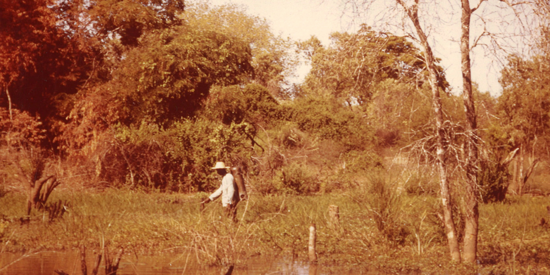
Andrea GrafOut of Sight? Bilharzia in Madagascar as a Global History of ‘Neglected Tropical Diseases’, 1950 to the present
Supervisor: Prof. Dr. Julia Tischler, Professor of African History, University of Basel
Co-Supervisor: Prof. Dr. Guillaume Lachenal, Professor of the History of Science, Sciences Po, Paris
Advisor: Dr. Lukas Meier, Historian of Science and Secretary General R. Geigy Foundation
Interest in the history of diseases has burgeoned in recent years, both in research and among the public. However, so-called neglected tropical diseases (NTDs), which together affect more than one billion people in tropical and sub-tropical regions, are often absent from both academic and popular considerations. This dissertation project addresses this desideratum by investigating the historical construction and reconstruction of NTDs in local and global contexts, enquiring into the meaning of ‘neglected’ and the process through which certain diseases become designated as such. It does so through a focus on responses to the parasitic worm disease bilharzia in Madagascar from the 1950s to the present. The thesis proposes that the history of bilharzia in this setting serves as a telling example of how a disease came to be constructed as an NTD through (re)definition by various external actors – missionaries, international organisations, development aid workers, scientists, policy makers and pharmaceutical companies – during the late colonial and postcolonial periods. Through their plans and interventions, these actors have not only drastically increased the prevalence of a disease that was previously not very widespread, but also introduced bilharzia as a tangible, serious entity to the Malagasy people. Local auxiliaries also played a crucial role in the success and longevity of the related health interventions – an aspect that has received little attention in scholarship to date. The thesis is a historical epidemiology study that combines African local medical history with global history and analyses the different practices and bodies of knowledge that define NTDs on multiple levels. Through oral history interviews with contemporary witnesses and auxiliaries of international interventions, archival research and the review of biomedical literature, I will be able to examine the perceptions and course of the disease as well as the ways in which local practices, knowledge production, transnational collaboration and the institutionalisation of health care influenced the disease, its spread, and its effects.
Bildnachweis: Swiss TPH Archiv, ohne Signatur, Foto: Antoine Degrémont
